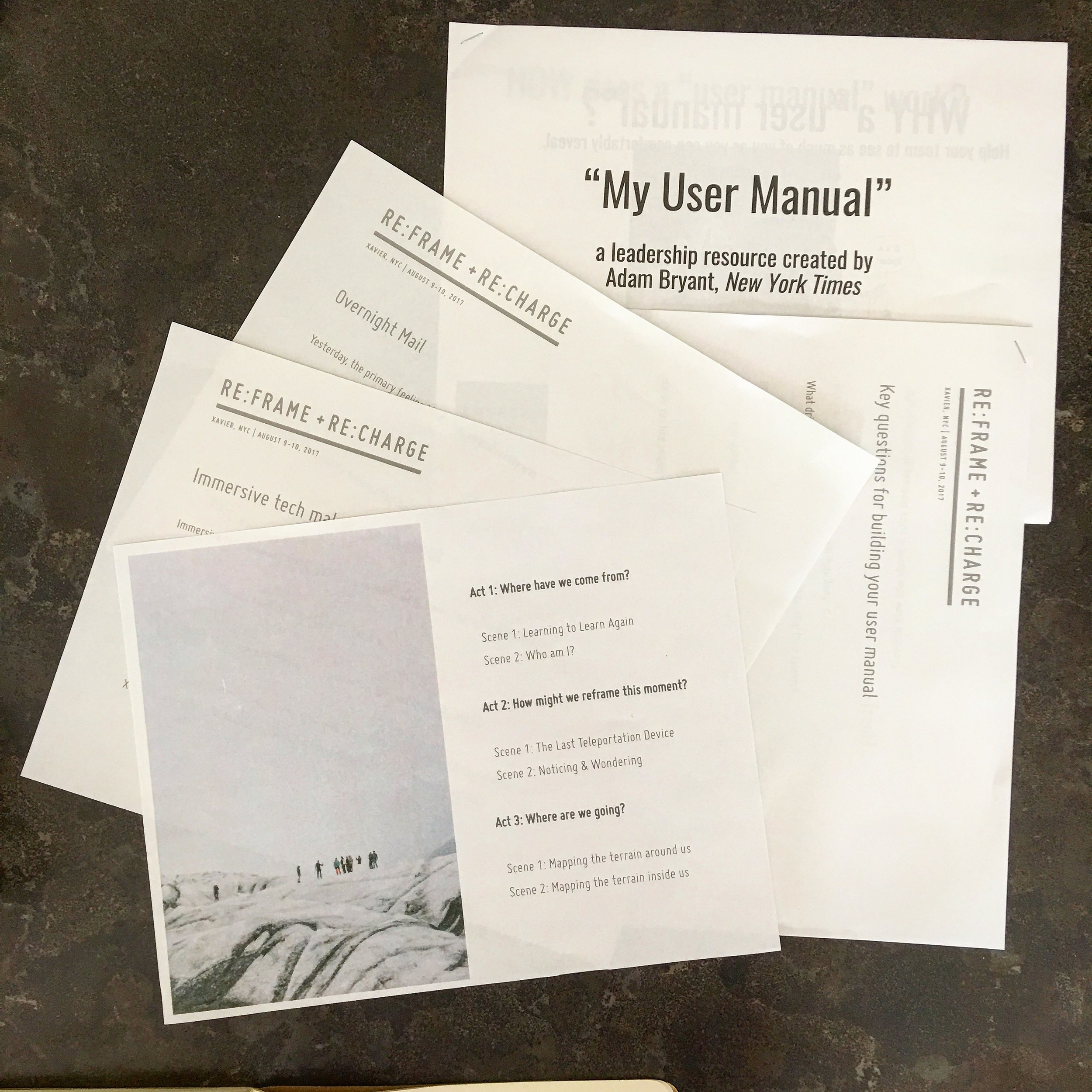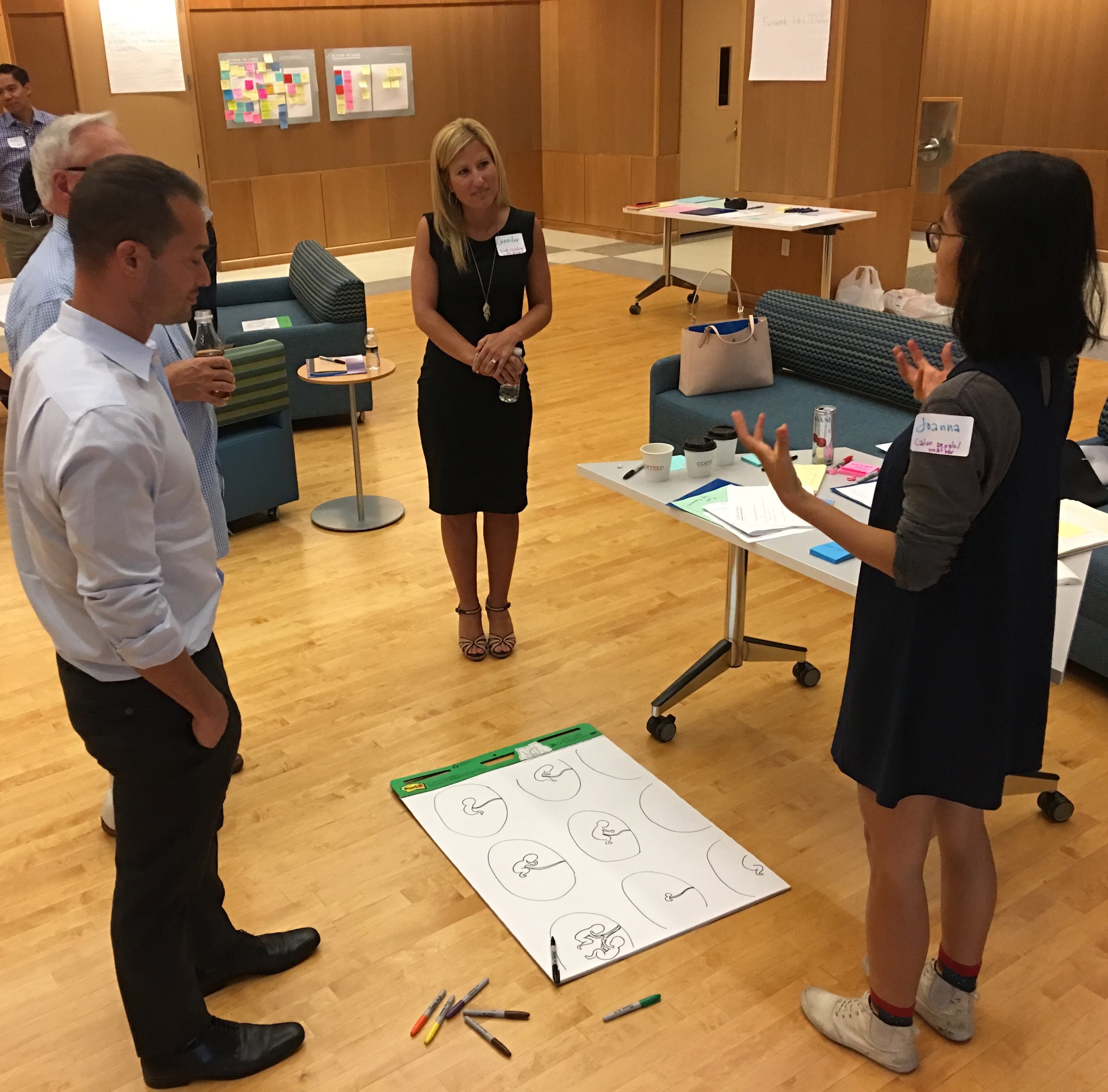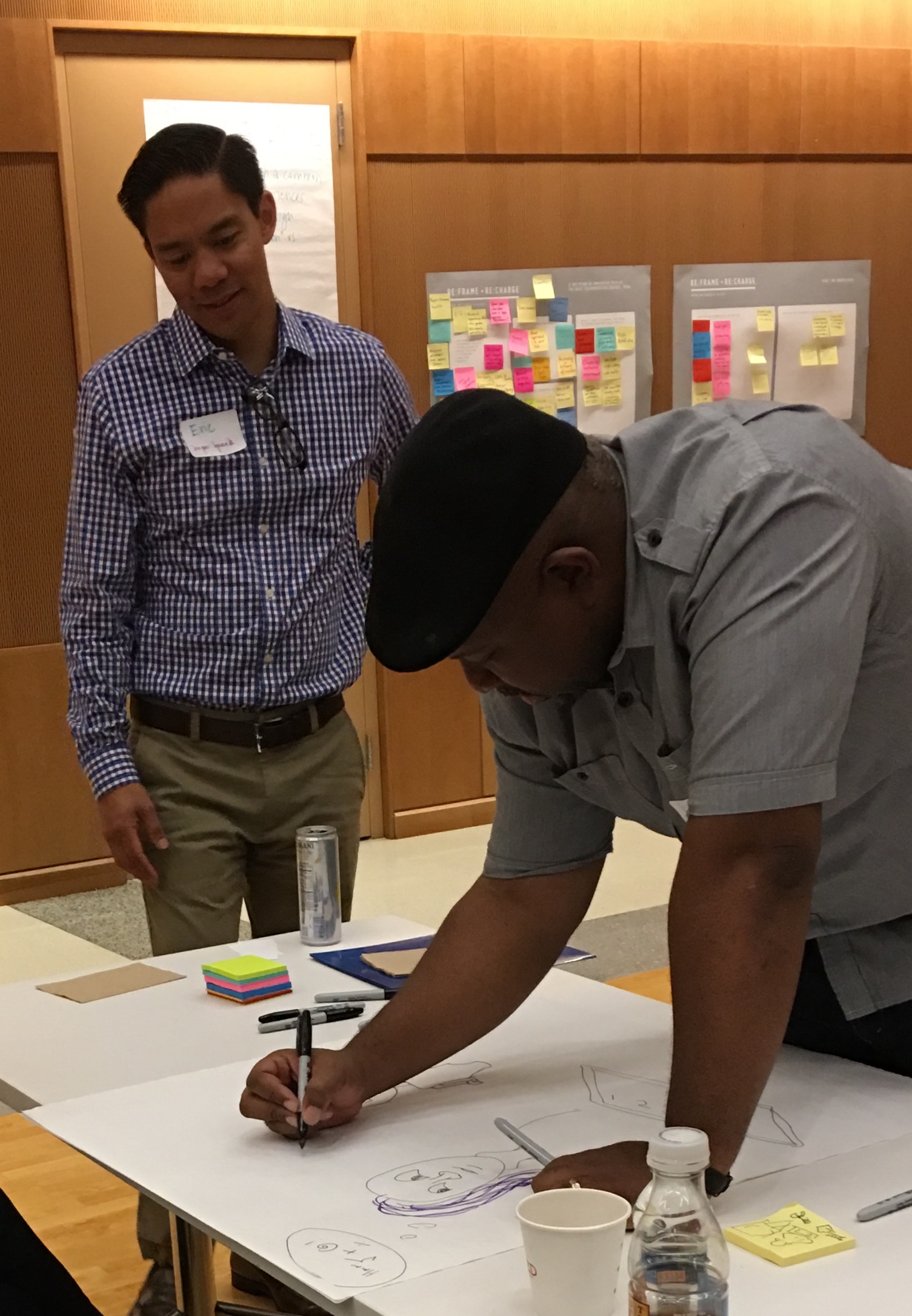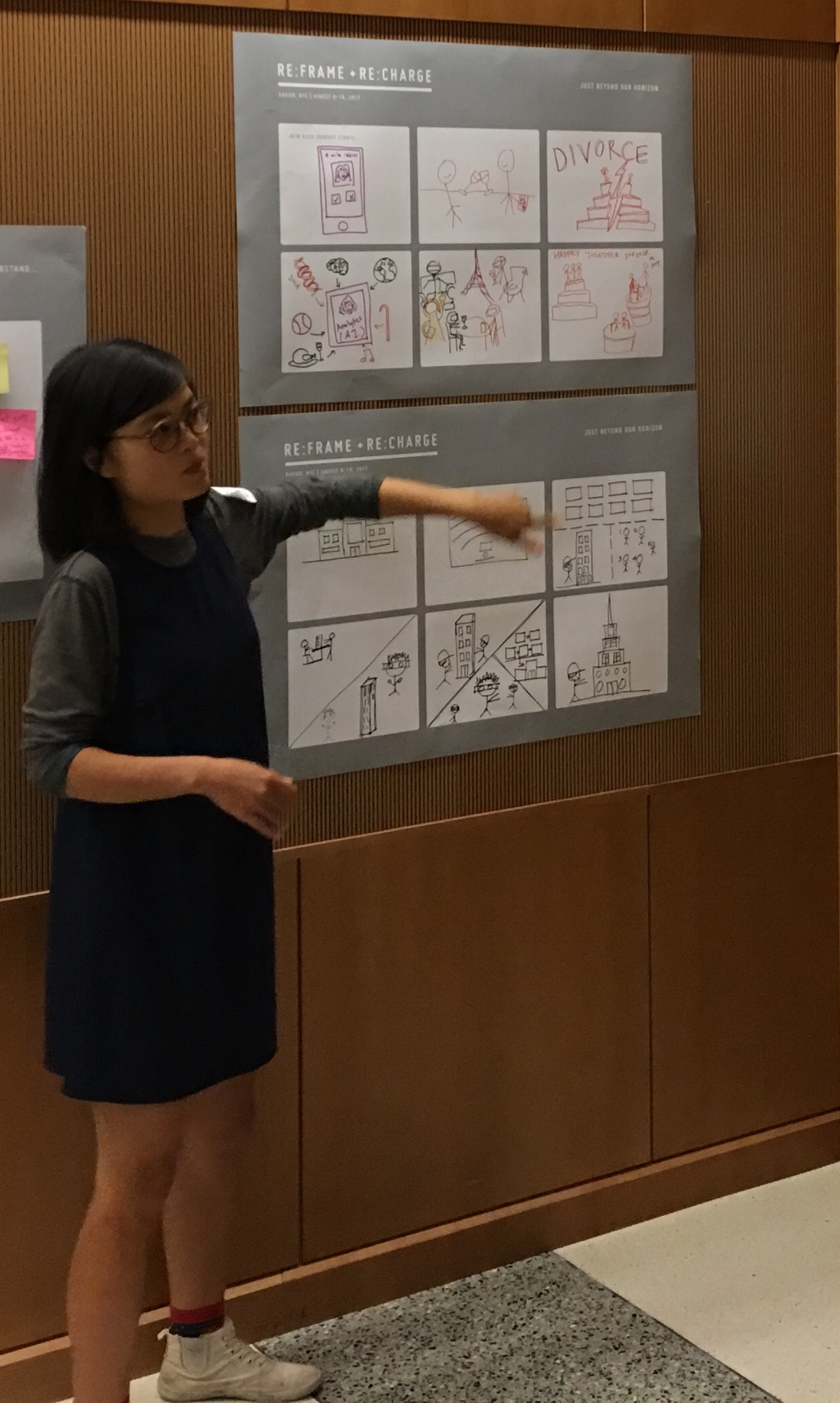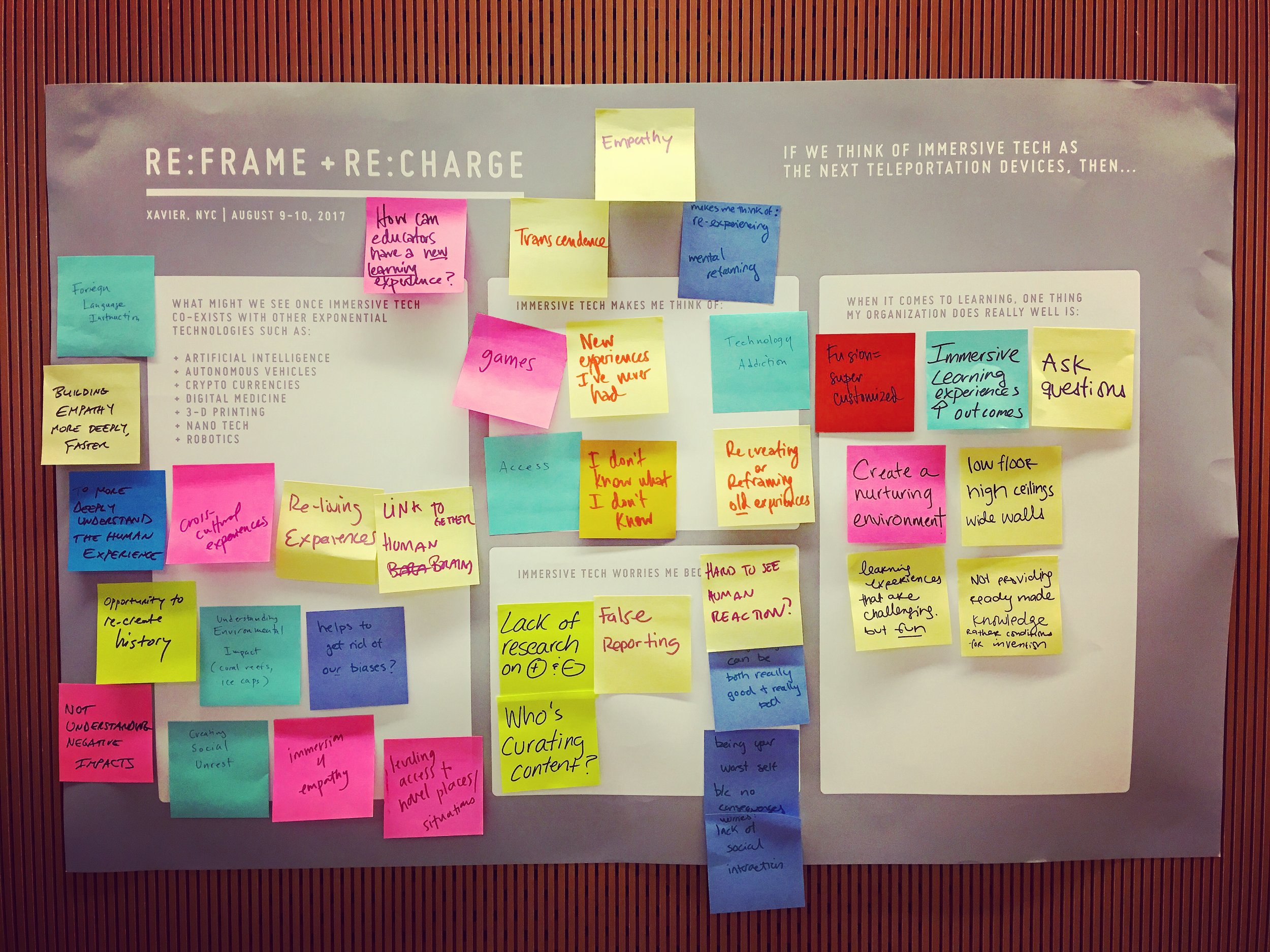The New Magic
Leaders from education and industry gather in Xavier High School's brand new Keenan Commons to participate in Re:frame + Re:charge.
Last week, a new cohort participated in Re:frame + Re:charge, a workshop on the future of learning and leadership. We gathered at Xavier High School, whose mission, like that of all Jesuit schools, is to form "men and women for others." It was an appropriate site to discuss how to use virtual reality (VR) to create an optimistic future.
In a framing talk entitled "The Last Teleportation Device," Viktor Venson invoked a famous Arthur C. Clark quote: "Any sufficiently advanced technology is indistinguishable from magic."
And therein lies a serious challenge: magic relies upon sleight-of-hand and misdirection. Because we want to be delighted and entertained and mystified, we suspend judgment.
This is why Re:frame + Re:charge brings together leaders from education and industry to imagine ways to use VR and other "magical" technologies--not to mesmerize us, but rather to help us to be more human.
Participants in Re:frame + Re:charge playtested different devices (HTC Vive, Oculus Rift, Microsoft Hololens) and paper-prototyped use cases for the year 2027.
Even more importantly, they generated many questions. Here are just a few:
+ How might we create a common language for VR experiences (e.g., “empathy”) and VR design principles (e.g., “inclusion” vs. “exclusion”)?
+ Who are the gatekeepers and who are the change agents for exponential technologies?
+ How might exponential technologies help us to disrupt inequity and injustice?
In the wake of the violent marches by white supremacists in Charlottesville, this last question feels urgent: Will Nazis (or neo-Nazis) simply be "the bad guys" in a virtual reality video game? Or will we teach students to design VR experiences with a conscience, like "Papers, Please"?
Which leads me to wonder:
What is your school or learning organization doing to prepare learners to use these new forms of "magic"?
Thank you for reading! Want to receive original Basecamp blog posts every Tuesday and Thursday and "Top Reads" every Saturday? Subscribe here.


